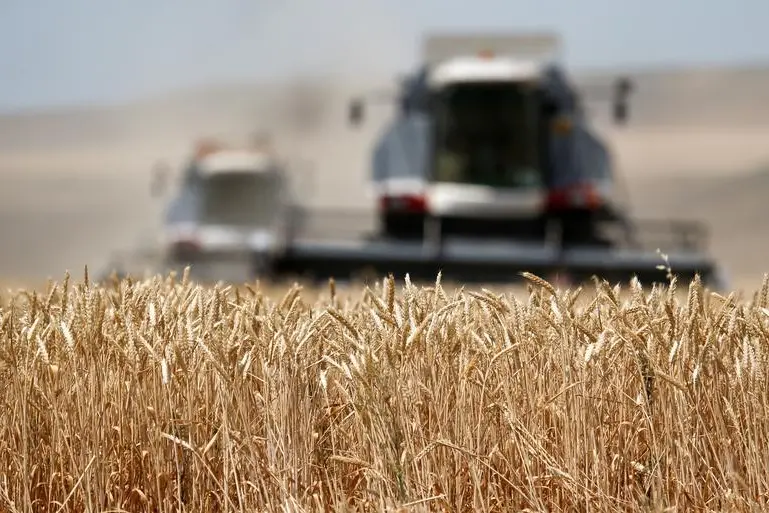PHOTO
The Middle East and North Africa has long been disadvantaged by a climate and geography unfavorable to large-scale agriculture. This in turn affects food security in the region. Scarce water supplies and mostly dry, arid lands will continue to cripple the region’s ability to achieve self-sufficiency in food production.
The abundance of hydrocarbons and other minerals has mitigated some of these concerns, and some MENA countries can afford to import large quantities of produce and grains. Additionally, resources, manpower and capital are certainly available but mismanagement, waste, poor planning and a lack of clear policies have taken their toll on the region’s ability to harness meager resources and grow its own food. Higher population densities and population growth rates have inevitably turned the region into a net importer of agricultural commodities for food for the foreseeable future.
Unfortunately, it is not only the Middle East that is experiencing population growth, and subsequently increased demand for food and water. A US government report estimates that the global demand for food, water and energy will increase by 50 percent as a result of changing consumption patterns among the expanding middle classes.
By 2030, the world’s population is expected to reach 8.3 billion, which will put additional strain on food and water. Already, in the past eight years, the world has consumed more food than it has produced, while global water requirements are predicted to reach nearly 7 billion cubic meters, 40 percent above the level of current sustainable supplies. Expected climate changes will only exacerbate these alarming numbers. Agriculture already consumes more than 60 percent of water supplies and these requirements will increase to 65 percent a decade from now, when nations are supposed to meet 2030 Millennium Development Goals.
One of these goals is the elimination of hunger, but the MENA region has to import about 57 percent of the calories consumed domestically, mostly wheat, grains, proteins and dairy. Given that the ready availability of affordable and diverse foodstuffs is a crucial factor in long-term stability, MENA countries can be forgiven for relying heavily on imports for the time being. For example, the conflict in Yemen has reduced grain harvests there by a third, and with the water table falling by about 2 meters a year, it is unlikely that the country will be able to stop importing more than 80 percent of its grain any time soon. Grain harvests are also falling in Iraq, Syria and Jordan, while populations are still growing.
Relying on imports makes the region vulnerable to the effects of economic downturns, population growth, climate changes and supply disruptions caused by natural disasters. This last problem is of growing concern due to the increasing incidence of extreme-weather events, mainly influenced by climate change.
Weather patterns are likely to intensify, with wet regions getting wetter while dry, arid areas such as the Middle East and North Africa will experience further declines in rainfall. Some forecasts suggest precipitation in Algeria, Saudi Arabia and Iraq will decline by 4.9 percent, 10.5 percent and 13.3 percent respectively. This decline will also affect the southwest United States, southern Europe, Central Asia and parts of southern Africa. Reduced rainfall will in turn affect agricultural production among net exporters and increase food imports elsewhere. If current trends persist, the Middle East is likely to experience shortages of food and water, necessitating outside help or a transformation of current policy, either to boost local production or increase spending on imports.
When the effects of protracted, often violent, conflicts are taken into account, food security becomes a very serious concern. A United Nations report found that more than 27 percent of the population in conflict areas is undernourished or chronically hungry. This contrasts with more stable countries, where less than 5 percent of the population is undernourished.
Transforming an economy away from a dependence on imports of agricultural produce and foodstuffs is not easy. Several sectors, including agriculture, education, trade, health care, labor, transport, law, finance and even technology, need to function in close cooperation and coordination to achieve appreciable gains in local production.
Given the fast-growing population in the MENA region, dwindling water supplies, extreme weather events and unpredictable markets, governments must act swiftly and with utmost urgency to counter a looming food and water crisis.
This fast-approaching challenge, which threatens the national security of all Arab countries, can only be faced and managed collectively, through serious, urgent and deep cooperation. It is, in short, an existential threat that can no longer be ignored.
Hafed Al-Ghwell is a non-resident senior fellow with the Foreign Policy Institute at the John Hopkins University School of Advanced International Studies. He is also senior adviser at the international economic consultancy Maxwell Stamp and at the geopolitical risk advisory firm Oxford Analytica, a member of the Strategic Advisory Solutions International Group in Washington DC and a former adviser to the board of the World Bank Group. Twitter: @HafedAlGhwell
Arab News: Copyright: Arab News © 2017 All rights reserved. Provided by SyndiGate Media Inc. ( www.Syndigate.info ).
Disclaimer: The content of this article is syndicated or provided to this website from an external third party provider. We are not responsible for, and do not control, such external websites, entities, applications or media publishers. The body of the text is provided on an “as is” and “as available” basis and has not been edited in any way. Neither we nor our affiliates guarantee the accuracy of or endorse the views or opinions expressed in this article. Read our full disclaimer policy here.





















